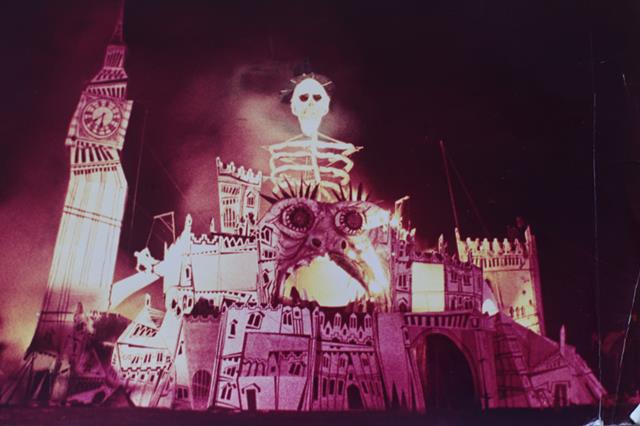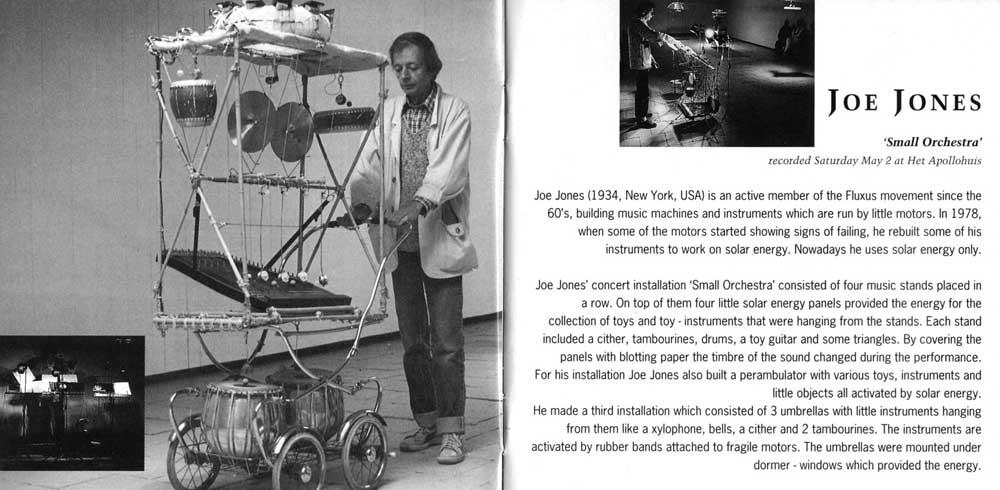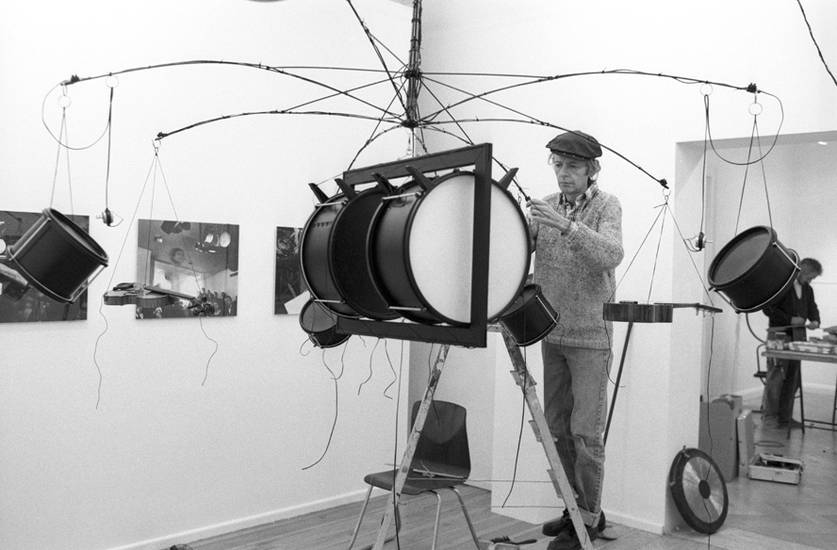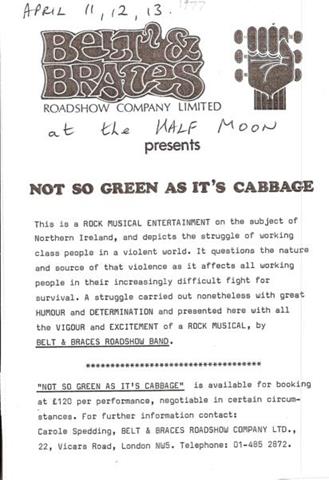"Really awful is more interesting to listen to than pretty good" - Eno ................................................................................................................................................................................................................. welcome to the drivel blog of "music detractor, Simon Reynolds"
Wednesday, March 29, 2017
Tuesday, March 28, 2017
turning Jaapanese
off of

scion of Utrecht's Institute of Sonology
from this name-your-price memorial release
the blurb / bio for the Recollection GRM retrospective
(must say, I do wish they would make their reissues available as compact discs, or even as FLAC downloads - cannot be arsed with the bulk and inconvenience - nor expense, frankly - of the vinyl releases, and i don't think this kind of music is especially enhanced by vinyl's alleged warmth. Ironically you can get it digitally but only if you buy the vinyl - which gives you access to the download codes. which probably means that in practice most purchasers listen to it digitally anyway!)
The Institute of Sonology in Utrecht has earned its international reputation mostly for pioneering work in the field of computer-assisted algorithmic composition and digital sound synthesis by composers such as Gottfried Michael Koenig, Werner Kaegi, Paul Berg and Barry Truax. Anyone familiar with the music of these composers would have to admit that even within this ‘genre’ there were no stylistic dogmas. The stylistic range of Sonology’s artistic output becomes even broader when the work of other staff and frequent guests is taken into account, for example the compositions based on field recordings and audio-visual projects by Frits Weiland, the radiophonic works and pieces for tape and instruments by Luctor Ponse, the cybernetic tape compositions by Roland Kayn, or the experiments with computer graphics by Peter Struycken, to name just a few. And then there was Jaap Vink.
Jaap Vink (Den Helder, 1930) studied engineering at first, but then became interested in electronic music. He attended courses in electroacoustics at Delft University of Technology and installed a pedagogical studio for electronic music in 1961 at the Gaudeamus Foundation in Bilthoven with the help of the Nederlandse Radio Unie (NRU). He was a staff member at the Institute of Sonology as a teacher in analogue studio techniques from 1967 until his retirement in 1993.
Jaap Vink always tried to break out of the periodicity of the sounds so abundantly available in the electronic music studio. Although his music was entirely produced with purely electronic sound material, its textures resemble the richness of orchestral sounds, or large natural sound-complexes, as a result of recursive processes. The density of this sound material increases and decreases by careful control of feedback networks with configurations of analogue tape recorders (delay lines), filters and modulators. It should come as no surprise that his work is being rediscovered at a time when a new generation of musicians has conquered the stage with modular synthesizer setups and ‘no-input mixers’, in which feedback of audio and control signals plays an important role. And although Jaap Vink’s music wasn’t performed live but produced and recorded on magnetic tape in the studio, it is exactly the human interaction with feedback processes that connects his work with the current generation of live electronic music performers. To some extent Jaap Vink’s pieces are indeed recorded live improvisations, and extending his patches and ‘rehearsing’ with them was an ongoing process. To see Jaap Vink at work in the studio was to hear the studio coming to life. After his composition Screen (1968) had been performed at concerts and released on the famous Electronic Panorama LP-set (Philips 6740 001), Jaap Vink was asked regularly to contribute to Sonology’s concerts in the Netherlands and abroad. It was for these occasions that his recorded studio improvisations were brought to the level of fixed compositions and given titles. The selection presented here gives an overview of Jaap Vink’s works made in Utrecht, ranging from his first composition Screen up to Tide 1985, produced during the Institute of Sonology’s last year in that city.
Kees Tazelaar
Kees Tazelaar
Monday, March 27, 2017
jumping & parping
"the most important band in the world" - Eno
"I suppose there is some kind of nebulous central core of ideas, which may to do with us all having come out of systems music and our interest in foreign music but actually we are influenced by Frank Zappa, James Blood Ulmer, Bach" - Orlando Gough, Man Jumping keyb.
the precursor group, the Lost Jockey - much more Nyman-y
"and I'm Ian"
the last pretty-decent thing they did?
well, the lyrics are good on this
otherwise the album is a desert
and then Dury solo... i can't even remember if I checked it out once or not, but if I did left little impression, except for this
such a tragedy that he and Chas couldn't keep it together
that was supposed to the Important track on his solo debut album, the one with the message - a self-conscious epic at just shy of 15 minutes long - and as i recall rather different on the original LP than this contemporized edit... As music quite urgent and driving, but you can only imagine how it might have sounded with a commanding Dury vocal rather than Jankel's subdued and mousy effort
when it all went on the turn... turning back into pub rock (Wilko was never right for the Blockheads)
Sunday, March 26, 2017
Saturday, March 25, 2017
Friday, March 24, 2017
Thursday, March 23, 2017
Wednesday, March 22, 2017
Tuesday, March 21, 2017
Monday, March 20, 2017
Sunday, March 19, 2017
Saturday, March 18, 2017
Friday, March 17, 2017
Wednesday, March 15, 2017
4th world
release rationale
"Optimo Music presents "Miracle Steps (Music from the Fourth World 1983 - 2017)", a 2 x LP compilation of Fourth World music compiled by JD Twitch & Fergus Clark. Also available as a digital release.
This compilation had been on the label’s to do list for ages but it was only when Twitch and Glasgow’s Fergus Clark started crossing swords over what actually constituted Fourth World music that the project really got going. Twitch decided that co-compiling the release with someone who had a slightly different take on things might make for a more interesting finished release, and so it came to pass that a cohesively thrilling compilation quickly materialised as each of them drew from a wealth of different artists and eras.
For the uninitiated, here’s an extract from Fergus Clark’s sleeve notes honing in on how the term Fourth World (an idea conjured up by Jon Hassell in the early 80s) might be defined -
“What we have attempted to gather across this compilation is a body of work which we feel directly resonates with both the literal definition of ‘Fourth World’ music and indeed our own interpretation of this unique sonic vision; from the work of the late Jorge Reyes, a Mexican musician who combined pre-hispanic instruments with synthesisers and digital sampling, through to the work of organic ambient ensemble O Yuki Conjugate. There are tracks which utilise custom, home-made instruments and there are tracks built from scratch using the latest in digital technology, but the undercurrent tying each piece together is this deeply personal feeling of intrigue and mysterious elation. Strange and unparalleled, this feeling manages to eschew geographic borders and rigid genre movements in favour of something which manages to evoke an inner sanctum, a musical private place for both reflection and assessment. This is music grounded in nor the past nor the present, music which manages to sound futuristic yet remarkably nostalgic. “
JD Twitch is one half of Glasgow’s Optimo (Espacio) and runs the Optimo Music and Optimo Trax labels.
Fergus Clark is a writer, occasional DJ and avid music fan. He is a founding member of the music and art collective 12th Isle."
Tuesday, March 14, 2017
Monday, March 13, 2017
ancestral invocations
"Luis Pérez was born in Mexico City on July 11, 1951. Since 1971 he has dedicated much of his time to the research of pre-Columbian musical instruments. He has traveled over the years all over the countryside of Mexico in order to study the living musical traditions and learn directly from the living sources while collecting samples of musical instruments, music and songs. His collection of native Mexican instruments include archaeological artifacts representative of the different cultural groups in the area known as Mesoamerica, some dating more than 2000 years ago.
"His early work while still in Mexico, was a mixture of sounds from his vast array of pre-Columbian and ethnographic wind and percussion instruments which he managed to blend with electronic devices such as; tape based delay units and analog synthezisers; in 1981 his work was heard and described in the U.S. by Archie Patterson as, "perhaps the ultimate fusion of ethnic and modern music, a stunning effect as the two different styles merge superbly into a mystical musical tapestry". Luis simply called it: Musica Experimental Mexicana. During that year the Mexican government became interested in his work and sponsored the production of what came to be the first recording of this type entitled: Ipan In Xiktli Metztli ( En el Ombligo de la Luna ) which made a big impact among the media and established Luis Pérez as a precursor in this field followed by a new generation of Mexican musicians" - Sacred Summits
Saturday, March 11, 2017
Electronic Music From York / ICES '72

strangely unCreeled as yet... a holy grail for electronic / tape collectors, this 1973 triple LP box of pieces made at the University of York Electronic Music Studio .. so I had a bash at virtually reconstructing it in its entirey, using the riches of the internet - and didn't get very far
| A1 | –Andrew Bentley | Moan No luck | |
| A2 | –Martin Gellhorn | Compression ICES '72 No luck | |
| B1 | –John Cardale | Dionysus No luck | |
| B2 | –Richard Orton (2) No Luck | Kiss | |
| C1 | –Richard Orton (2) | For The Time Being No luck | |
| C2 | –Richard Orton (2) | Clock Farm No luck however I do have a copy of this  | |
| D1 | –Martin Wesley-Smith | Media Music No luck, but did find this other work of his | |
| D2 | –Richard Pickett | Light Black No luck at all | |
| E | –Trevor Wishart | Machine Part 1 | |
| F1 | –Trevor Wishart | Machine Part 2 | |
| F2 | –Trevor Wishart | Machine Part 3 the whole of Machine at the Other Minds archive |
so that is in fact - Wishart aside - a complete bust if you've got one, do us a burn will ya? HOWEVER bits and bobs from Electronic Music from York are said to be part of this long mix (int two parts) called Epsilonia Mix: Trevor Wishart and Friends. It's an excellent listen (includes things from Trev's Journey Into Space, Red Bird, Mouth Music, Sing Circle, Beach Singularity, etc + stuff from another incredibly rare release from York Electronic Studios, the more song-oriented All Day - York Pop Music Project. But be warned: nothing is identified or in discernible sequence so who knows how much or which components of the elusive triple LP are in here. in my search for properly tagged and identified Electronic Music From York tuneage i did find a few other Wishart odds 'n' sods that i'm not sure i've got (i have nearly everything that's available on compact disc and a few files besides) |
oh and here is an extensive obituary of Richard Orton
Andrew Bentley, Martin Gelhorn, John Cardale, Richard Pickett and Martin Wesley-Smith are, however, so obscure that they don't even have entries in Ian Helliwell's Tape Leaders book
(Wishart and Orton do)

Wesley-Smith seems to have left the most traceable spoor of compositions behind him
Martin Gellhorn's piece "Compression ICES '72" is partly named after this event - International Carnival of Experimental Sound aka "ICES 72", an avant-garde music festival held at the Roundhouse, Chalk Farm, London, England, 13-26 August 1972,
:format(jpeg):mode_rgb():quality(90)/discogs-images/L-1059527-1472632322-4570.jpeg.jpg)
poster design is by Gee Vaucher - later of Crass!
:format(jpeg):mode_rgb():quality(90)/discogs-images/L-1059527-1472632326-1631.jpeg.jpg)
Oh, for a time machine!
The festival is discussed here at Other Minds
"Charles Amirkhanian talks to Harvey Matusow about the International Carnival of Experimental Sounds (ICES ‘72), an avant-garde music festival, based on the theme of myth, magic, madness and mysticism, that was held in August 1972 in London. Featuring 46 concerts in 14 days, including marathon performances in an refurbished railroad roundhouse, a music train to Edinburgh, films, happenings, and performances by avant-garde artists, dancers, and musicians from around the world, ICES ‘72 could be considered as a spiritual progenitor of such extravagances as Burning Man. That it was the brain child of Matusow, (with help from John LIfton and the editors of “Source Magazine”), is of little surprise as the man was part clown, part con man, and full time promoter of all things weird and wonderful. Once known as the “most hated man in America” for his role in informing, or misinforming, on Communists, including Pete Seeger, during the McCarthy Era, Matusow was a consummate show man and artistic visionary. In this interview he describes the Carnival, and introduces a number of recordings from it, including two works featuring the electronic music of Takehisa Kosugi as well as a sort of classical muddley by the Portsmouth Sinfonia. The Sinfonia was formed by group of students at Portsmouth School of Art in Portsmouth, England, however, unlike most student orchestras this one required that all the participants either be untrained or at least playing an instrument with which they were unfamiliar, all with very predictable results. A further description of ICES ‘72 and a recording of many of the pieces performed at the Festival can be found at http://www.pogus.com/ICES01.html."
a thorough account of the event and its participant performers by Dave Thompson
1972 Rolling Stone piece on Harvey Matusow, ICES organiser - and former McCarthy-ite!




Thursday, March 9, 2017
Wednesday, March 8, 2017
twinkle crinkle tingle shingling
feel like these are source records for everything from The Focus Group to 4 Hero
All three volumes of De Wolfe Music's The World of Percussion and Tuned Percussion (Eric Allen & Frank Reidy) can be heard here in full
1
http://www.dewolfemusic.com/search.p...82&code=NSchuy
2
http://www.dewolfemusic.com/search.p...97&code=GC947m
3
http://www.dewolfemusic.com/search.p...j3I&id=7892205
Allen & Reidy also responsible for these dark glinting beauties, beloved of the haunty crew
Saturday, March 4, 2017
Civic Magicians and Engineers of the Imagination


"Lol Coxhill was the musical director for this travelling troupe
from 1973 to 1975. This is functional music, adapted to the multi-dimensional
performances of Welfare State, Welfare State was a nomadic consortium of
artists, makers, musicians and performers. As said by John Fox in the liner
notes, the WS envisaged themselves as Civic Magicians and Engineers of the
Imagination, devising rituals and constructing images for particular times,
places and seasons. They travelled throughout Europe with a mobile village of
lorries and caravans, creating and animating outdoor events with sculptures,
theatre pieces, celebrations, dances and processions. Consisting of 16 adults
and 7 children, WS would stop for shorter or longer residences, whenever the
opportunity arose to "make poetry concrete". The record captures the functionality and the ceremoniality
of the music, though listening to it one inevitably misses the other sensory
elements needed to make it a full spectacular experience, but one might conjure
up suitable visual images from the sounds captured on this album, not the.least
the front cover pic which reminds me of the cult film "The Wicker
Man". Obvious referneces here to
medieval ceremonies and rituals and old-age mythology. It might bear some
resemblances to what in the UK has become known as the Travellers movement,
dating back to the festivals of the 70s and ideas of alternative life styles,
ironically at a certain distance from the welfare state, one might think." - Inconstant Sol

Wednesday, March 1, 2017
Subscribe to:
Posts (Atom)














